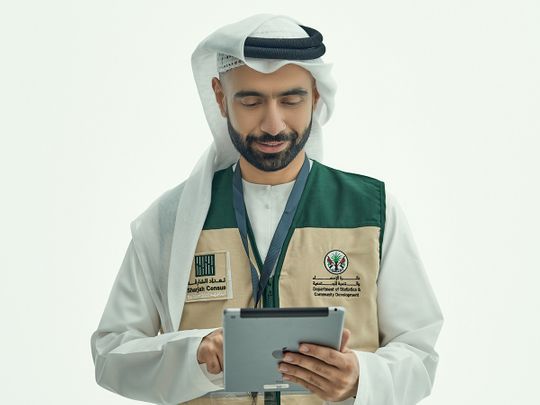‘Breakthrough’ in Multiple Sclerosis treatment reported by UAE stem cells centre

Image Credit: Supplied
Abu Dhabi: A UAE-based stem cell centre has reported a ‘breakthrough’ in a clinical trial for Multiple Sclerosis (MS), an autoimmune disease that affects the brain and spinal cord or the central nervous system.
The announcement about MS patients’ symptoms remarkably improving following the treatment has been made by the Abu Dhabi Stem Cells Centre (ADSCC).
A PureHealth subsidiary, ADSCC said it has achieved a milestone in one of its ongoing clinical trials — the Extracorporeal Photopheresis (ECP) for Optimal Management of Multiple Sclerosis (PHOMS) study. The study evaluates the safety and efficacy of using ECP to treat people with MS.
As an immunomodulatory therapy used for some cancer treatments, graft-versus-host disease (GvHD), and autoimmune diseases, ECP in this study seeks to alleviate MS symptoms by rebalancing the immune system of the patient.
Success story
ADSCC has revealed that one of the success stories within the PHOMS trial involves a UAE resident, diagnosed with MS in 2019.
Prior to participating in the study, the patient experienced debilitating symptoms such as difficulty walking, imbalance, gait disturbance, slurred speech and cognitive impairment.
“After six months of treatment with ECP, the patient has reported significant improvements in mobility, reduced imbalance-related issues and clearer speech. These improvements have been consistently observed during his three-month neurological testing,” said ADSCC.
DOH approval
In 2022, ADSCC’s trial received approval from the Department of Health – Abu Dhabi (DOH). Ever since then, it has enrolled a group of participants diagnosed with Secondary Progressive Multiple Sclerosis (SPMS) or Relapsing-Remitting Multiple Sclerosis (RRMS).
The trial is also registered in the global clinical trials registry available online.
Dr Yendry Ventura, the principal investigator in the PHOMS study at ADSCC, said: “Clinical trials and research play a pivotal role in advancing healthcare and bringing cutting-edge innovations within the public’s reach. These endeavours drive clinical progress, enhance patient care and bridge the gap between groundbreaking discoveries and real-world healthcare solutions.”
“In line with the vision of the UAE’s leadership and as leaders in clinical research in the UAE, our clinical trials and research efforts at ADSCC signify an extraordinary chapter in our medical history and expedite our pursuit of a healthier society and establishing Abu Dhabi as a prominent global destination for healthcare, innovation and research,” said Dr Ventura.
“The clinical outcome of our patients in this clinical trial is a milestone that underscores our dedication to rewriting the narrative of MS treatment in the region,” he added.
Dr Fatima Al Kaabi, executive director of the Abu Dhabi Bone Marrow Transplant Programme (AD-BMT) at ADSCC, who is also an investigator in the PHOMS Study, and vice chair of the National MS Society, said: “ADSCC is proud to be at the forefront of innovative research in the field of MS treatment, and through groundbreaking therapies and research, our aim is to improve MS patients’ quality of life.”
She added: “Unveiling the impact of ECP in people with MS is a journey that started a year ago through the PHOMS clinical trial at ADSCC during which our world-class physicians, scientists and dedicated researchers worked together to pioneer cutting-edge therapies for MS patients. In the pursuit of excellence, we recognise that every discovery we make has the potential to change lives today and tomorrow.”
28 procedures in 6 months
Dr Yandy Marx Castillo Aleman, head of Clinical Trials and Sub-Investigator in PHOMS study at ADSCC, said: “PHOMS trial has already made significant strides with our participants. Patients are accepted following specific clinical, laboratory and imaging criteria,” he said.
“Within the framework of the PHOMS study, patients undergo a series of 28 ECP procedures spanning six months, followed by an additional period of six months for monitoring by the ADSCC Neurology team. The promising results we saw with our patients allow us to move forward with the PHOMS study which will be completed in another 12 months.”
What does it entail?
Dr Ruqia Mir, neurology consultant and sub-investigator in PHOMS study at ADSCC, said: “This innovative procedure used in our study, ECP, involves the treatment of a patient’s autologous leukocytes with a photoactivatable drug, followed by exposure to UVA light and subsequent reinfusion into the patient. ECP has shown promising results in addressing a range of medical conditions, and now with our clinical trial, is offering hope to individuals living with MS. Through the PHOMS study and our commitment to transformative research, we strive to provide additional treatment options for patients facing this challenging condition.”


